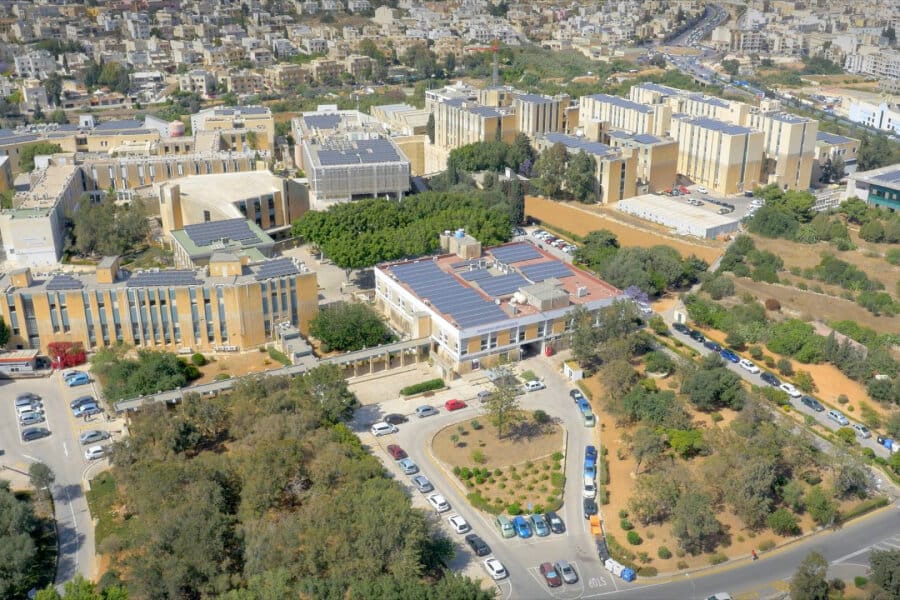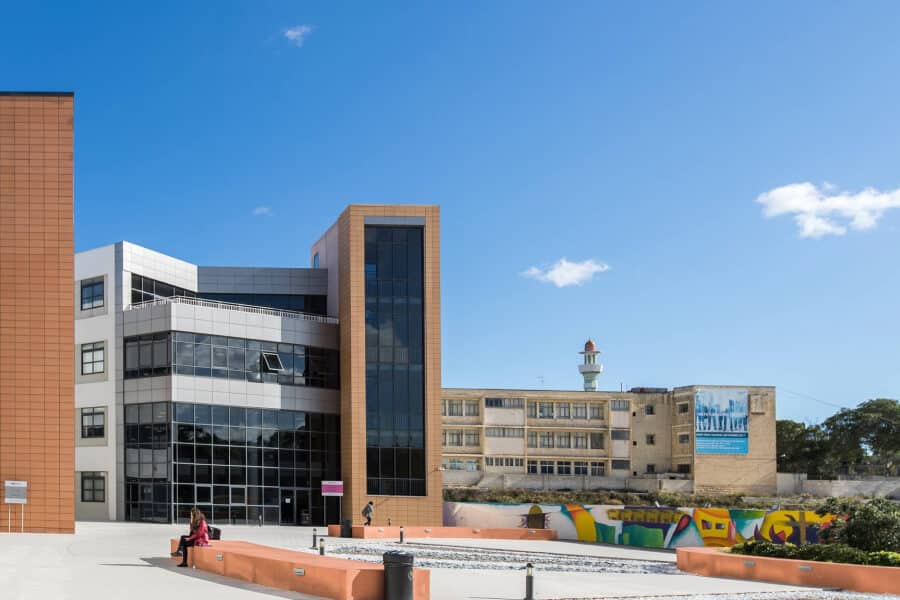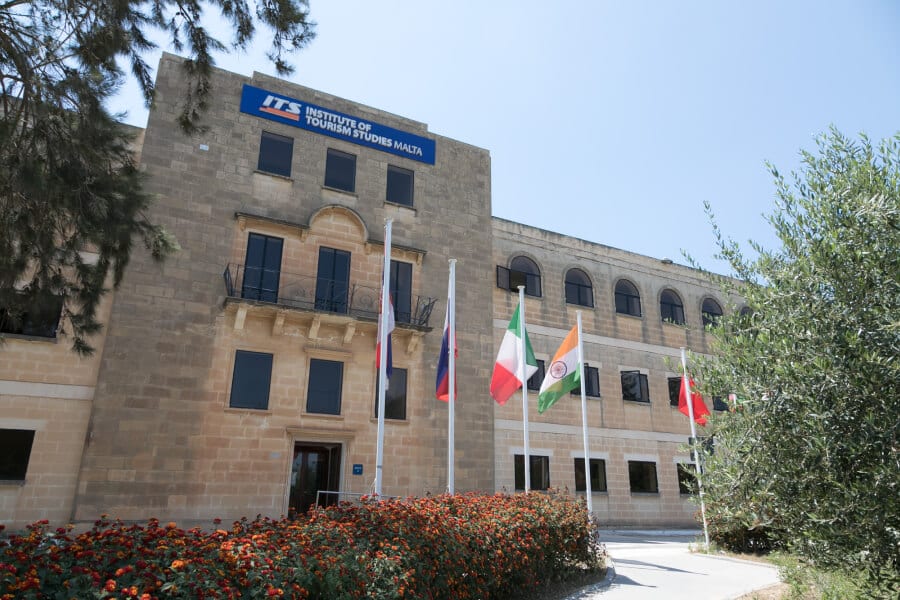The best universities in Malta: everything about the higher education system and the country’s top universities
In Malta, students are trained by one of the oldest universities in Europe. It is also included in the top 1,000 universities in the world according to the QS World University Ranking. At the same time, the cost of education for foreign students is two times lower than in UK universities.

Told how to enter a university in Malta
Fact checked byAlbert Ioffe
Reviewed byVladlena Baranova

The best universities in Malta: everything about the higher education system and the country's top universities
Share:
Diplomas of Maltese universities are valid in Europe and the USA. For talented students, there are financial support systems in the form of scholarships and tax deductions.
We will tell you which universities are the best in Malta, how to prepare for admission and study at a university for free.
How the higher education system works in Malta
Higher education in Malta is available to graduates of local schools and colleges, as well as foreign applicants. You can get higher education at state universities and branches of foreign educational institutions, e.g. the London School of Commerce.
Stages of learning. The Maltese higher education system adheres to the principles of the British and the European Bologna system. Education in Maltese universities is divided into three stages: bachelor’s, master’s and doctoral studies.
A bachelor’s degree (Undergraduate Level) in most specialties is obtained in three years of full-time study. For students of legal and medical specialties, the term is increased to six to seven years. Evening or part-time education takes five or six years, depending on the specialty.
The graduate receives a bachelor’s degree, with which they can get a job.
Master’s study (Postgraduate Level) lasts one or two years, training is available full-time and part-time. The master’s degree is issued after the defense of a thesis project or scientific research.
Doctorate (PhD) takes two years. To get a degree, you need to defend a dissertation.
Undergraduate
3 to 7 years
Postgraduate
1 to 2 years
Doctorate
From 2 years
The calendar. The academic year is divided into two semesters. For first-year students, the first semester begins on October 1st, for continuing education it starts on September 27th. The second semester starts on February 7th. From what semester the training begins depends on the university and the chosen specialty.
The dates of the beginning of the semester, holidays and sessions are floating. For example, the semester always starts on Monday, and the Christmas break always starts on Saturday.
Sample timetable for the academic year at the University of Malta
October 1st
Beginning of the first semester
December 18th to January 2nd
Christmas holidays
January 17th to February 5th
Term exams
February 7th
Beginning of the second semester
April, 11th to 24th
Eastern holidays
May 28th to June 30th
Term exams
June 30th
End of the school year
September, 1st to 17th
Passing and retaking exams
How much does it cost to study at Maltese universities?
For citizens and residents of Malta, education in state universities is free.
Citizens and residents of other EU states, as a rule, study at public Maltese universities for free. But if a fee is charged, then it is lower than for other international students.
Students from countries outside the European Union enter Maltese universities only on a fee basis. The cost of education depends on the chosen specialty and is charged for the year or for each semester. On average, a year of a bachelor’s degree costs €3,000 to 10,000.
€3,000+
The cost of a year of undergraduate studies at a Maltese university
The most expensive study in medical specialties: a year of study as a dentist at the University of Malta is worth €26,000.
Educational expenses may include payment for expendable supplies, such as for scientific research and experiments. Such a fee is charged at the University of Malta: depending on the faculty, the amount per year can range from €500 to 20,000.
Scholarships are awarded for academic excellence. Under the Get Qualified state program, you can get a tax deduction that will cover up to 70% of the cost of education. Students of the Malta College of Arts, Science and Technology can receive a one-time scholarship payment: €6,500 in the third year of study and €8,650 in the fourth.
How to prepare for admission to the University of Malta
A school graduate can immediately enter a Maltese university if his level of preparation meets the requirements for admission. For example, if the applicant has sufficiently high grades in the established subjects.
There are agreements between Malta and certain third countries, such as Russia, on the mutual recognition of education and training qualifications. Therefore, applicants from such countries do not need to additionally go through the notification procedure and confirm that their grades correspond to the Maltese or the international baccalaureate system.
If the applicant does not speak English or does not gain a passing score for admission to a university, then taking a preparatory course like Foundation Studies is available. Such a course is provided by the University of Malta. The training lasts a year, during which the student improves his knowledge of specialized subjects and English.
Foreign applicants confirm the level of English proficiency. Accepted certificates of passing the language exam TOEFL, IELTS, Cambridge. TOEFL and IELTS certificates must be obtained no earlier than two years before the intended start of study at a university in Malta.
English proficiency level for admission to the University of Malta
Interested in Maltese residency?
Don’t wait, book your online meeting now for expert guidance.

Head of the Maltese office, MBA
What documents are needed for admission to the university
Applicants apply for admission online on the website of the selected university. The application indicates from which semester the applicant wants to start studying and in which specialty.
Along with the application, future students provide scans of:
a passport;
a high school diploma or bachelor’s degree;
a certificate confirming the level of English proficiency — for foreign applicants.
If the applicant graduated from a school in Malta, they provide one of the following documents for admission to the bachelor’s degree:
a certificate of complete secondary education of the European standard, Matriculation Certificate;
a certificate of completion of secondary education under the International Baccalaureate program (IB);
a certificate of completion of secondary education under the European Baccalaureate program (EB);
a diploma of secondary specialized education.
For admission to the magistracy, you need to present a bachelor’s degree.
Foreign applicants are considered to be applicants who have received a certificate or diploma outside of Malta. They provide scans of documents and their certified translations into English. An extract with a list of subjects taken and the number of academic hours must be attached to a copy of the bachelor’s degree.
Foreign certificates and diplomas must be confirmed with an apostille or consular legalization: without it, a document on education will not have legal force in Malta.
How applicants enroll in Maltese universities
Admission to Maltese universities is on a competitive basis. Educational institutions publish the number of places available in the specialty in advance. The deadlines for accepting applications and requirements for the knowledge of applicants are also announced.
Application deadlines for Maltese citizens and international applicants may vary. For example, in 2021, the University of Malta accepted applications according to the following schedule: from foreign applicants — until June 30th, from Maltese — until July 22nd.
June, 30th
A deadline for applying to the University of Malta for foreign candidates
Candidates pay a non-refundable application fee. The amount of the fee may depend on the nationality of the applicant and the deadline for submitting the application. For example, applying to the University of Malta will cost €23 if the applicant is a citizen or resident of an EU country. For foreign applicants, the fee is €95. Moreover, if you submit an application later than the deadline, the amount of the fee increases to €125.
In some cases, interviews or musical auditions are held with applicants. You may also need a conclusion based on the results of a medical examination, for example, when entering a specialty related to sports or dance.
3 best public universities in Malta
1. The University of Malta (l-Università ta' Malta) in Msida
€8,500+ — tuition fee per year of undergraduate studies
English — language of study
The University of Malta was founded in 1592 and is one of the oldest universities in Europe. In 2022, the university comprises 14 faculties, 18 institutes, 13 research centers and three schools. The campuses of the university are located in the capital of Valletta, Marsaxlokk and on the island of Gozo.
Education at the university takes place in more than 350 specialties, including the humanities, law, architecture, economics and banking, and medicine. On the basis of the university, you can also take courses in Maltese, Chinese, German, French, Italian and Spanish.
The University of Malta participates in the European student exchange program Erasmus+. Under the terms of the program, students can spend a semester or a year of study at a partner university in another EU country, Iceland, Liechtenstein, North Macedonia, Norway or Turkey.
Prestigious specialties
Architecture and urban planning
Dentistry
Management
Economy
Mechanical engineering
IT
Jurisprudence
Pediatrics
Natural and exact sciences
Banking
Pedagogy
Psychology
Radio electronics
Microelectronics
Nanotechnology
Surgery
Pharmacology
Philosophy and theology

The main campus of the University of Malta in Msida. 11,000 students studied at the university in 2021, of which about 10% were foreign students
2. The Malta College of Arts, Science & Technology (MCAST) in Paola
€5,400+ — tuition fee per year of undergraduate studies
English, Maltese — language of study
Education at the university is carried out in 180 full-time and 300 evening courses. The university specializes in vocational specialties: food production, chemistry and pharmacology, gas and oil industry, medicine, veterinary medicine, and agronomy.
The university also includes the faculties of business management and commerce, social sciences, art, engineering and transport.
The college participates in the European student exchange program Erasmus+. Under the terms of the program, students in the final year of their bachelor’s degree can do an internship in another EU state. Summer internships with a semester of study at a partner university are also available.
Prestigious specialties
Food technology
Dentistry
Management
Business management
Engineering
Logistics
Pharmacology
Agronomy
Accounting
Veterinary
Building and construction
Finance and insurance

The main campus of the Malta College of Arts, Science and Technology
3. Institute of Tourism Studies (ITS) in Luqa
€1,600+ — tuition fee per year of undergraduate studies
English — language of study
The institute trains specialists in the field of catering and hospitality. Students can also study foreign languages like Russian, French, German, Italian and Spanish.
The training programs are created in cooperation with the Emirates Academy of Hospitality Management, which is one of the ten best educational institutions in the field of tourism in the world.
The Malta Institute of Tourism Studies cooperates with the French Institut Paul Bocuse, the Finnish University of Applied Sciences Haaga-Helia. The university also participates in the SUNx Malta tourism support program, the DAN Europe European diving program and the Erasmus+ student exchange program.
Prestigious specialties
Hotel management
Food preparation and production management
Tourist guiding
Events management

The campus of the Institute of Tourism is located in the south of Malta
How to become a citizen or resident of Malta to get a higher education for free
Maltese citizenship can be obtained by naturalization. The standard naturalization process takes five years during which the applicant for a Maltese passport lives permanently in the country. But the process can be shortened to three years, or one year if you apply for citizenship for exceptional services by direct investment.
In order to obtain a Maltese passport, the investor first obtains a residence permit. It then goes through a rigorous Due Diligence check. Only after verification and approval can the investor apply for citizenship. At the same time, he fulfills three investment conditions:
The amount of the contribution depends on the deadline for applying for citizenship: €600,000 — three years after obtaining a residence permit, €750,000 — one year later.
The investor also pays for health insurance, an administrative fee and a fee for issuing ID-cards.
Permanent residence in Malta also entitles you to study free of charge in Maltese public universities. You can get resident status by investment under the state Malta Permanent Residence Program.
Program participants invest from €110,000 under four investment conditions:
The investor also confirms the ownership of assets in the amount of at least €500,000, €150,000 of which must be liquid financial assets.
Minors and adult children can obtain citizenship or permanent residence together with the investor. A Maltese passport will be issued to financially dependent children under the age of 29. Under the permanent residence program, the age of the child is not limited, but it is necessary to confirm financial dependence on the investor.
Immigrant Invest is a licensed agent for citizenship and residence by investment programs in the EU, the Caribbean, Asia, and the Middle East. Take advantage of our global 15-year expertise — schedule a meeting with our investment programs experts.

Practical Guide
Will you obtain Maltese citizenship?
Master the residency process
Get expert tips and documents
Estimate costs accurately




















